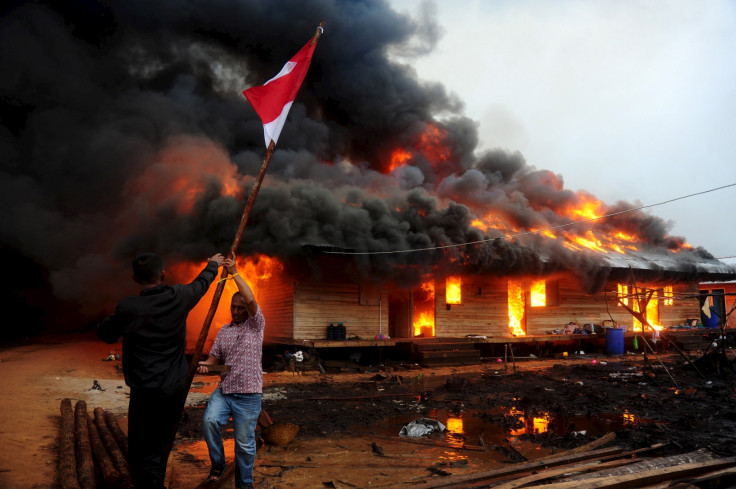Indonesia imprisons leaders of 'deviant' religious group on blasphemy charges
Amnesty International has condemned targeting of the Gafatar community and called for release of its members.

A court in Indonesia has found three leaders of the religious minority group, known as Gafatar, guilty of blasphemy and sentenced them to multiple years in prison.
The East Jakarta District Court awarded five-year prison terms to the community's founder, Ahmad Moshaddeq, and president, Mahful Muis Tumanurung. Gafatar spokesperson and vice president Andry Cahya received a three-year sentence.
Presiding judge Muhammad Sirad ruled on 7 March, that the three men had "tarnished one of the religions in Indonesia deliberately in public", referring in particular to Islam. In his verdict statement, he said that the movement "contradicted and offended Islamic values held by most Indonesian citizens".
The Gafatar belief system combines the teachings of Islam, Christianity and Judaism but urges followers to give up certain Islamic practices like prayer, fasting and the Hajj pilgrimage. Indonesia being a country with a majority Muslim population, these opposing ideas have lead to public suspicion and accusations of "deviant teachings".
The recent imprisonments are part of a larger anti-Gafatar campaign by the government, which began in January 2016. At the time, security forces in West and East Kalimantan provinces allowed ethnic Malay and Dayak mobs to loot and destroy Gafatar property.
Gafatar's members were also taken to unofficial detention centres. According to the Human Rights Watch, the move was meant to "end their presence on the island and dissolve the religious group".
"The anti-Gafatar campaign is a chilling reminder of the willingness of government officials to deny basic rights to security and religious freedom to religious minorities," said Phelim Kine, the deputy director of HRW's Asia division, referring to similar abuses against Shia Muslims, the Ahmadiyah, and some Christian congregations in the past.
Amnesty International also criticised the Indonesian legal system and demanded that the government "immediately and unconditionally release" the three men.
"The sentences show how Indonesia's vague, coercive and discriminatory blasphemy laws are being used to punish people for peacefully exercising minority beliefs," said Josef Benedict, Amnesty International's Deputy Director for Southeast Asia and the Pacific.
"These individuals must be released immediately and unconditionally, and the blasphemy law, which flies in the face of Indonesia's human rights obligations, should be repealed."
© Copyright IBTimes 2025. All rights reserved.






















